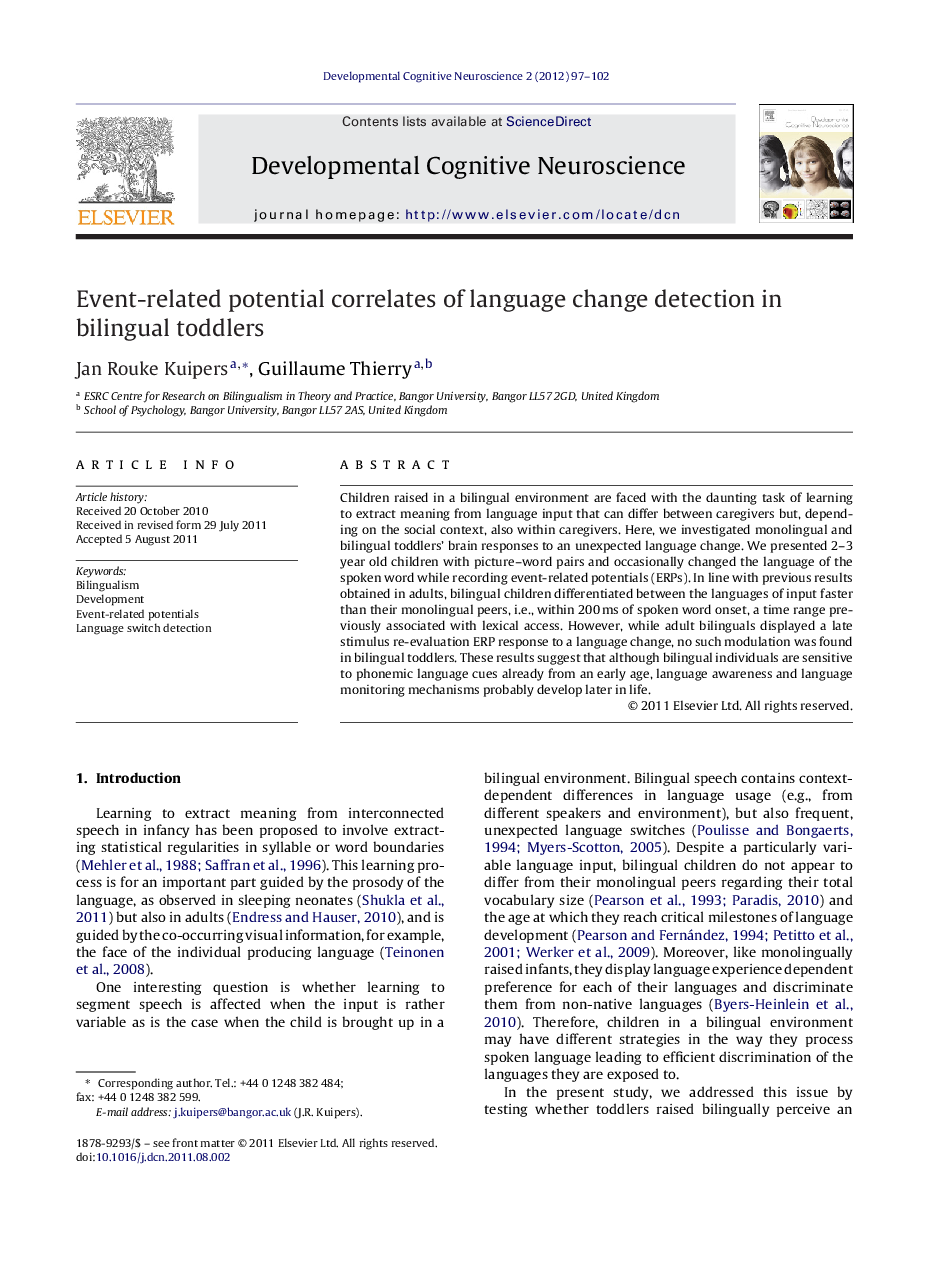| Article ID | Journal | Published Year | Pages | File Type |
|---|---|---|---|---|
| 4316788 | Developmental Cognitive Neuroscience | 2012 | 6 Pages |
Children raised in a bilingual environment are faced with the daunting task of learning to extract meaning from language input that can differ between caregivers but, depending on the social context, also within caregivers. Here, we investigated monolingual and bilingual toddlers’ brain responses to an unexpected language change. We presented 2–3 year old children with picture–word pairs and occasionally changed the language of the spoken word while recording event-related potentials (ERPs). In line with previous results obtained in adults, bilingual children differentiated between the languages of input faster than their monolingual peers, i.e., within 200 ms of spoken word onset, a time range previously associated with lexical access. However, while adult bilinguals displayed a late stimulus re-evaluation ERP response to a language change, no such modulation was found in bilingual toddlers. These results suggest that although bilingual individuals are sensitive to phonemic language cues already from an early age, language awareness and language monitoring mechanisms probably develop later in life.
* Bilingual toddlers detect a language change faster than their monolingual peers. * Unlike adult bilinguals, toddlers do not show signs of conscious stimulus revaluation mechanisms. * Language awareness and monitoring appears to develop after the age of three.
